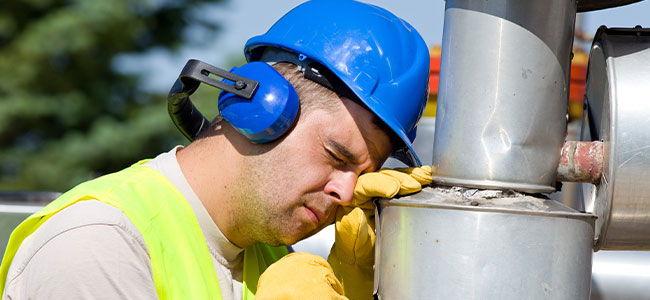
Innovative Technology Ensures Quality Sleep and Improves Worker Safety in Offshore Environments
While there are many physical hazards present in offshore environments, such as noise pollution, vibration, radiation and thermal extremes, oil and gas companies must stay committed to promoting employee safety with regular maintenance checks, ongoing training programs and a continued focus on employee health.
- By Katja Siberg
- Feb 16, 2024
In the dynamic and challenging world of offshore work, employee well-being is crucial for maintaining a safe and productive environment. Rig workers typically endure extended shifts, commonly working in rotations that involve spending consecutive weeks on the rig. The work demands a high level of physical fitness, mental alertness and adaptability to unpredictable weather conditions. The noise from heavy machinery and equipment is pervasive, and the living quarters are often compact, shared spaces. Unsurprisingly, the camaraderie among the crew is a distinctive aspect of the job, as workers forge strong bonds due to the close-knit living and working arrangements.
While there are many physical hazards present in offshore environments, such as noise pollution, vibration, radiation and thermal extremes, oil and gas companies must stay committed to promoting employee safety with regular maintenance checks, ongoing training programs and a continued focus on employee health.
Healthy sleep is a critical part of anyone’s day-to-day function with benefits like improved brain performance, mood and health overall. Adequate sleep is associated with improved cognitive function, memory consolidation and emotional regulation. It acts as a rejuvenating force, aiding in the repair of tissues, muscle growth and the release of essential hormones. Moreover, a consistent and restful sleep pattern supports immune system function, reducing susceptibility to illnesses. Emotionally, sufficient sleep promotes mood stability and resilience to stress, fostering better mental health. Additionally, research from the US Department of Health shows that consistently getting quality sleep decreases the risk of many diseases and disorders, including heart disease, obesity and dementia.
Quality sleep is especially important for oil rig workers who need to maintain a high level of alertness, focus and overall well-being required in the demanding offshore work environment. People living and working on oil rigs must prioritize sleep health to mitigate the risks associated with fatigue and stress.
However, offshore environments are inherently loud. With various pieces of equipment and machinery contributing to elevated sound levels, it can be hard for those living and working on oil rigs for weeks at a time to find the quiet needed for a good night’s sleep. A study by the China National Offshore Oil Corp revealed that 70 percent of surveyed sites on six platforms had noise levels exceeding 80 decidels A (dBA). This persistent noise poses a dual challenge for offshore workers: the risk of hearing impairment and the potential for sleep disturbance.
The market is full of solutions intended to reduce noise that interrupts sleep—such as foam earplugs and custom-molded options—but they often prove insufficient in canceling out low-frequency noises. Moreover, research indicates that traditional white, pink and brown noise machines designed to mask surrounding sounds, can adversely affect sleep quality.
Given these unique challenges and lack of sufficient solutions, a groundbreaking technology has emerged to help improve sleep quality and health: Active Noise Canceling (ANC) technology designed for sleeping. ANC works by using a small microphone to sample ambient sound around a person and then uses a speaker to generate a phase-shifted sound that cancels out the original noise. This innovative approach proves particularly effective in targeting persistent low-frequency noises, providing offshore workers with the means to achieve quality sleep even in the most challenging conditions. The elements of the technology are so small that someone can comfortably sleep on their side without compromising noise cancellation quality.
The impact of sleep quality on offshore employee safety and performance cannot be overstated. Individuals who prioritize quality sleep often experience heightened energy levels, improved concentration and increased productivity, positively influencing their daily activities and interactions. Moreover, the oil and gas sector encompasses intricate machinery and processes, and a deficiency in sleep may result in mistakes, lapses in attention and impaired coordination. These elements heighten the risk of accidents or injuries, emphasizing the crucial correlation between obtaining quality sleep and ensuring overall workplace safety.
Managing low-frequency noises and creating a conducive sleep environment in offshore settings require innovative solutions. Fortunately, ANC technology has emerged as a crucial tool to enhance sleep quality, promote employee well-being and foster a safer working environment. As technology continues to advance, the integration of ANC into the daily lives of those working in challenging conditions ensures a safer and healthier option for living with the hum of machinery that accompanies life at sea or on gas and oil platforms.
Prioritizing quality sleep is not just a matter of personal health; it is a fundamental aspect of ensuring the safety and success of offshore operations.